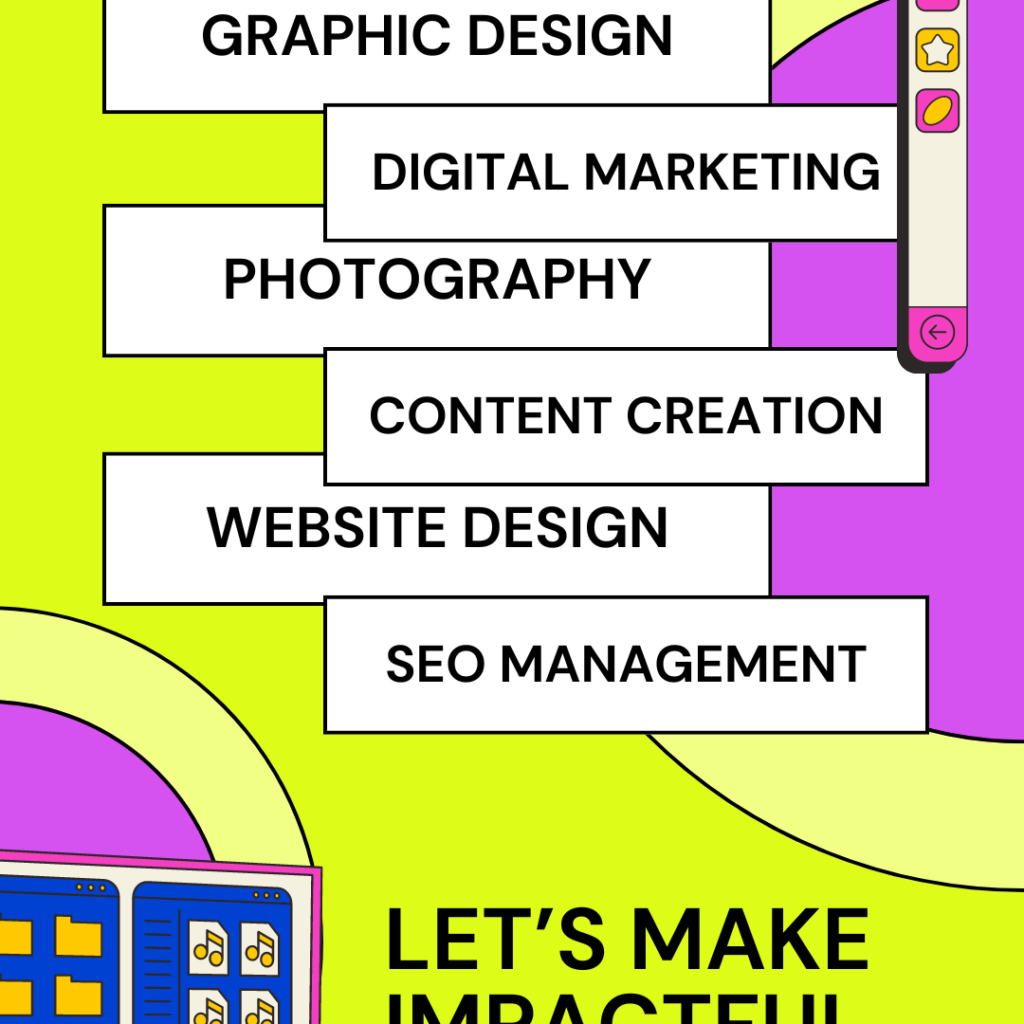Outline
- Introduction
- What is Digital Marketing?
- Importance of Digital Marketing
- The Evolution of Digital Marketing
- Early Days of the Internet
- The Rise of Social Media
- Mobile Marketing Era
- Types of Digital Marketing
- Search Engine Optimization (SEO)
- What is SEO?
- Importance of SEO
- Key SEO Strategies
- Content Marketing
- What is Content Marketing?
- Benefits of Content Marketing
- Effective Content Marketing Strategies
- Social Media Marketing (SMM)
- What is Social Media Marketing?
- Popular Social Media Platforms
- SMM Strategies
- Pay-Per-Click (PPC) Advertising
- What is PPC?
- Benefits of PPC
- PPC Platforms
- Email Marketing
- What is Email Marketing?
- Importance of Email Marketing
- Tips for Successful Email Marketing
- Affiliate Marketing
- What is Affiliate Marketing?
- Benefits of Affiliate Marketing
- How to Start with Affiliate Marketing
- Influencer Marketing
- What is Influencer Marketing?
- Benefits of Influencer Marketing
- Choosing the Right Influencers
- Search Engine Optimization (SEO)
- The Benefits of Digital Marketing
- Cost-Effectiveness
- Global Reach
- Targeted Advertising
- Measurable Results
- Challenges in Digital Marketing
- High Competition
- Keeping Up with Trends
- Data Privacy Concerns
- Future of Digital Marketing
- AI and Automation
- Personalization
- Video Marketing
- Conclusion
- FAQs
- What skills are needed for digital marketing?
- How do I start a career in digital marketing?
- Is digital marketing suitable for small businesses?
- What are the latest trends in digital marketing?
- How can I measure the success of a digital marketing campaign?

Short Note on Digital Marketing
Introduction
Digital marketing is the use of digital channels, platforms, and technologies to promote and sell products or services. It encompasses a wide range of strategies and tactics designed to reach audiences online, where they spend a significant amount of their time. From social media to search engines, digital marketing leverages the internet to connect with potential customers in a meaningful way.
What is Digital Marketing?
Digital marketing involves leveraging online platforms to promote brands, products, or services. It includes a variety of techniques such as search engine optimization (SEO), content marketing, social media marketing (SMM), email marketing, and more. Each of these techniques serves to engage customers, build brand awareness, and ultimately drive sales.
Importance of Digital Marketing
In today’s digital age, traditional marketing methods are no longer as effective as they once were. Consumers are increasingly turning to the internet to find information, make purchases, and interact with brands. Digital marketing meets customers where they are, offering personalized and interactive experiences that traditional marketing cannot.

The Evolution of Digital Marketing
Early Days of the Internet
Digital marketing began with the advent of the internet in the early 1990s. Early tactics included basic website creation and email marketing. Companies began to recognize the potential of the internet as a marketing tool, leading to the development of more sophisticated strategies.
The Rise of Social Media
The mid-2000s saw the rise of social media platforms like Facebook, Twitter, and LinkedIn. These platforms revolutionized digital marketing by allowing brands to engage directly with consumers. Social media marketing became a crucial part of digital strategies, offering new ways to build relationships and drive engagement.
Mobile Marketing Era
With the proliferation of smartphones, mobile marketing has become increasingly important. Brands now create mobile-friendly content and leverage mobile apps to reach consumers on the go. The ability to connect with users anytime and anywhere has transformed how marketers approach their strategies.

Types of Digital Marketing
Search Engine Optimization (SEO)
What is SEO?
SEO is the practice of optimizing a website to rank higher in search engine results pages (SERPs). It involves various techniques aimed at improving the site’s visibility to attract organic (non-paid) traffic.
Importance of SEO
SEO is crucial because it helps increase the visibility of a website, leading to more traffic and potential customers. Higher rankings in search results build credibility and trust with users.
Key SEO Strategies
- Keyword Research: Identifying relevant keywords that potential customers use.
- On-Page SEO: Optimizing website content, meta tags, and images.
- Off-Page SEO: Building backlinks from reputable sites.
- Technical SEO: Ensuring the website is fast, mobile-friendly, and easy to navigate.
Content Marketing
What is Content Marketing?
Content marketing involves creating and distributing valuable, relevant content to attract and engage a target audience. This content can take various forms, including blog posts, videos, infographics, and more.
Benefits of Content Marketing
Content marketing helps build brand authority, improve SEO, and generate leads. By providing valuable information, brands can establish themselves as industry leaders and build trust with their audience.
Effective Content Marketing Strategies
- Understanding Your Audience: Knowing who your audience is and what they need.
- Creating Quality Content: Producing high-quality, informative, and engaging content.
- Distribution: Sharing content through various channels such as social media, email, and partnerships.
Social Media Marketing (SMM)
What is Social Media Marketing?
SMM involves using social media platforms to promote products or services. It includes both organic strategies (unpaid) and paid advertising.
Popular Social Media Platforms
- Facebook: Great for reaching a wide audience and targeted advertising.
- Instagram: Ideal for visual content and engaging younger demographics.
- LinkedIn: Best for B2B marketing and professional networking.
- Twitter: Useful for real-time updates and customer interaction.
SMM Strategies
- Content Creation: Developing engaging posts, stories, and videos.
- Engagement: Interacting with followers through comments, likes, and shares.
- Advertising: Using paid ads to reach a larger or more targeted audience.
Pay-Per-Click (PPC) Advertising
What is PPC?
PPC is an online advertising model where advertisers pay a fee each time their ad is clicked. It’s a way to buy visits to your site rather than earning them organically.
Benefits of PPC
PPC can drive immediate traffic to a website, making it an effective way to generate leads and sales quickly. It also allows for precise targeting and budget control.
PPC Platforms
- Google Ads: The most popular PPC platform, offering a wide reach and various ad formats.
- Bing Ads: Another option for search engine advertising.
- Social Media Ads: Platforms like Facebook and Instagram also offer PPC advertising options.
Email Marketing
What is Email Marketing?
Email marketing involves sending promotional messages or newsletters to a list of subscribers. It’s a direct way to communicate with customers and prospects.
Importance of Email Marketing
Email marketing is cost-effective and provides a high return on investment (ROI). It allows for personalized communication and can help build long-term customer relationships.
Tips for Successful Email Marketing
- Build a Quality List: Collect email addresses from interested parties.
- Personalize Your Emails: Use the recipient’s name and tailor content to their interests.
- Test and Optimize: Regularly test different elements (subject lines, content) to improve performance.
Affiliate Marketing
What is Affiliate Marketing?
Affiliate marketing is a performance-based marketing strategy where businesses reward affiliates for driving traffic or sales through their marketing efforts.
Benefits of Affiliate Marketing
Affiliate marketing can help businesses reach a broader audience with minimal upfront costs. It’s a low-risk way to increase sales and brand awareness.
How to Start with Affiliate Marketing
- Choose a Platform: Find an affiliate platform or network to join.
- Select Affiliates: Partner with affiliates who align with your brand.
- Provide Resources: Give affiliates the tools and information they need to succeed.
Influencer Marketing
What is Influencer Marketing?
Influencer marketing involves partnering with influencers—individuals with a significant following on social media—to promote products or services.
Benefits of Influencer Marketing
Influencer marketing can help brands reach a larger and more engaged audience. Influencers can build trust and credibility with their followers, leading to higher conversion rates.
Choosing the Right Influencers
- Relevance: Ensure the influencer’s audience aligns with your target market.
- Engagement: Look for influencers with high engagement rates.
- Authenticity: Choose influencers who genuinely support your brand.

The Benefits of Digital Marketing
Cost-Effectiveness
Digital marketing is often more affordable than traditional marketing methods. It allows businesses to reach a large audience without spending a fortune on advertising.
Global Reach
With digital marketing, businesses can reach customers all over the world. Online campaigns can be targeted to specific regions or global audiences, breaking down geographical barriers.
Targeted Advertising
Digital marketing enables precise targeting, allowing businesses to reach the right audience with the right message. Techniques like PPC and social media ads offer detailed targeting options.
Measurable Results
One of the biggest advantages of digital marketing is the ability to measure results in real-time. Tools like Google Analytics and social media insights provide data on campaign performance, helping businesses make informed decisions.
Challenges in Digital Marketing
High Competition
The digital space is crowded, with countless brands competing for attention. Standing out requires creativity and strategic planning.
Keeping Up with Trends
Digital marketing is constantly evolving, with new trends and technologies
